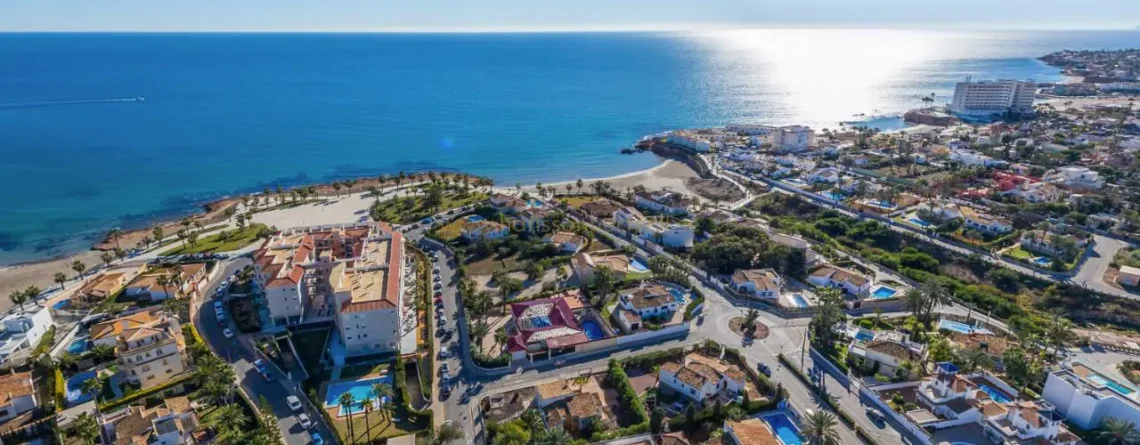Buying a house on the Spanish coast is the dream of many foreigners. But if you are not a tax resident in Spain, there are legal and tax requirements that you should know before signing. In this guide we explain, in a clear and professional way, how to buy a property in Orihuela Costa, what taxes apply and how to optimise your investment by complying with the law.
1. Why Orihuela Costa?
Orihuela Costa, in the province of Alicante, combines beaches, climate, security, golf, leisure and a wide international community. It is one of the most demanded areas by European buyers (French, Polish, British, Belgian, Nordic…). In addition, it has infrastructures, shops and services adapted to foreigners.
2. Steps to buy a home in Spain
- Obtain the NIE (Foreigner Identification Number), necessary to sign and pay taxes.
- Check the legal and urban situation of the property (debts, charges, legality).
- Sign the deposit or reservation contract.
- Grant the public deed before a notary.
- Register the property in the Registry and settle the corresponding taxes.
3. Tax aspects for non-residents
A) Non-Resident Income Tax (IRNR)
Every non-resident owner must present the 210 form, whether they rent or not. If the property is not rented, the Treasury imputes a fictitious income according to the cadastral value.
B) Taxes when buying a house
VAT or ITP:
VAT 10% if it is a new home;
ITP
10% in the Valencian Community if it is second-hand.
11% from 1.000.000€
- Notary and registration fees: between 1–2% of the price.
- Consultancy fees 1,210€
- Municipal capital gain: it is paid when selling the property.
- If the seller is also a non-resident, he must retain 3% of the purchase price and must declare it through form two hundred and eleven (211) for non-residents
(C) Subsequent taxation
- Wealth Tax: applicable only if certain limits are exceeded.
- Inheritance and Donation Tax: affects property located in Spain, including non-residents.
- Imputed income: if the house is not rented, a small annual income must be declared.
- Rent for rent:
- 19% for Europeans (deductible expenses)
- 24% for non-European (NOT deductible expenses)
D) Legal optimisation
In some cases, buying through a partnership or co-ownership can be interesting, but it must be analysed according to the country of origin and the use of the property.
4. Particularities of Orihuela Costa
- Verify that the urbanisation is completely legalised. If the work is finished, if it has a certificate of habitability or second occupation or if there has been a new construction afterwards.
- Review community expenses and tourist rental regulations. Request a certificate from the community administrator.
- Tax differences in the IBI between neighbouring municipalities (Orihuela, Torrevieja, Pilar de la Horadada). Cheaper Orihuela, Torrevieja and the most expensive Pilar de la horadada.
- Check the right of tae and retraction of the Valencian community
5. Practical example
House purchase of €250,000:
- ITP ≈ €25,000
- Notary and registration ≈ €2,500
- Annual IRNR (if not rented): small income imputed according to cadastral value.
- Future capital gain: between 19% and 24% when selling.
6. Advantages of having local counselling
A local tax advisor specialising in non-residents avoids errors, duplication and sanctions. In addition, he can assist you in French, English or Spanish, and take care of the entire process: NIE, taxes, deeds and annual declarations.
Conclusion
Buying a property in Orihuela Costa can be a safe and profitable investment if it is done with planning. With professional advice and a good tax strategy, you will enjoy your property without worries.
Do you need help?
Contact our team and we will advise you in your language on taxation and sale of properties for non-residents.












